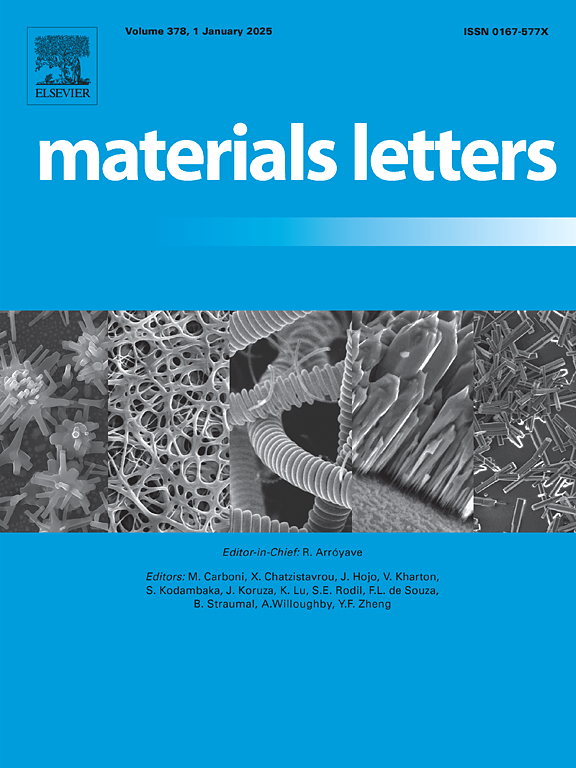以茶渣为细菌载体增强自愈性生物胶凝复合材料的耐高温性能
IF 2.7
4区 材料科学
Q3 MATERIALS SCIENCE, MULTIDISCIPLINARY
引用次数: 0
摘要
细菌复合材料表现出先进的自愈能力;然而,它们的有效性往往受到生产过程和环境条件的限制。为了提高细菌的生存能力,需要保护性载体,天然纤维最近被用于这一目的。纤维增强可以通过限制裂纹扩展来提高自愈效率。本研究探讨了茶渣作为胶凝复合材料细菌载体的潜力。巨型芽孢杆菌孢子被吸收到茶叶废料中,并以不同的浓度掺入砂浆样品中。细菌复合材料在高温下的耐久性,这是一个关键但尚未开发的方面,也进行了评估。在不同的高温条件下,对含有细菌茶渣的砂浆试样进行了未损伤和预裂状态的测试,然后进行了抗压强度评估。通过扫描电子显微镜(SEM)分析暴露后的显微结构变化。研究结果表明,茶渣有效地充当了细菌载体,表现出与天然纤维相当的行为。此外,它还有助于通过减轻热应力和促进方解石沉淀来提高残余强度,促进损伤修复。这些结果突出了茶废物作为一种可持续和有效的介质的潜力,可以提高细菌复合材料抵抗高温影响的耐久性。本文章由计算机程序翻译,如有差异,请以英文原文为准。
Enhancing the high-temperature resistance of self-healing bio-cementitious composites using tea waste as a bacterial carrier
Bacterial composites exhibit advanced self-healing capabilities; however, their effectiveness is often constrained by production processes and environmental conditions. To enhance bacterial viability, protective carriers are required, with natural fibers recently utilized for this purpose. Fiber reinforcement has been shown to improve self-healing efficiency by limiting crack propagation. This study investigates the potential of tea waste as a bacterial carrier in cementitious composites. Bacillus megaterium spores were absorbed into tea waste and incorporated into mortar specimens at varying concentrations. The durability of bacterial composites under high-temperature exposure, a critical yet underexplored aspect, was also evaluated. Mortar specimens containing bacterial tea waste were subjected to different high-temperature conditions in both undamaged and pre-cracked states, followed by compressive strength assessments. Post-exposure microstructural changes were analysed via scanning electron microscopy (SEM). The findings demonstrated that tea waste effectively functioned as a bacterial carrier, exhibiting behaviour comparable to natural fibers. Additionally, it contributed to enhanced residual strength by mitigating thermal stress and promoting calcite precipitation, facilitating damage repair. These results highlight the potential of tea waste as a sustainable and effective medium for improving the durability of bacterial composites against high-temperature effects.
求助全文
通过发布文献求助,成功后即可免费获取论文全文。
去求助
来源期刊

Materials Letters
工程技术-材料科学:综合
CiteScore
5.60
自引率
3.30%
发文量
1948
审稿时长
50 days
期刊介绍:
Materials Letters has an open access mirror journal Materials Letters: X, sharing the same aims and scope, editorial team, submission system and rigorous peer review.
Materials Letters is dedicated to publishing novel, cutting edge reports of broad interest to the materials community. The journal provides a forum for materials scientists and engineers, physicists, and chemists to rapidly communicate on the most important topics in the field of materials.
Contributions include, but are not limited to, a variety of topics such as:
• Materials - Metals and alloys, amorphous solids, ceramics, composites, polymers, semiconductors
• Applications - Structural, opto-electronic, magnetic, medical, MEMS, sensors, smart
• Characterization - Analytical, microscopy, scanning probes, nanoscopic, optical, electrical, magnetic, acoustic, spectroscopic, diffraction
• Novel Materials - Micro and nanostructures (nanowires, nanotubes, nanoparticles), nanocomposites, thin films, superlattices, quantum dots.
• Processing - Crystal growth, thin film processing, sol-gel processing, mechanical processing, assembly, nanocrystalline processing.
• Properties - Mechanical, magnetic, optical, electrical, ferroelectric, thermal, interfacial, transport, thermodynamic
• Synthesis - Quenching, solid state, solidification, solution synthesis, vapor deposition, high pressure, explosive
 求助内容:
求助内容: 应助结果提醒方式:
应助结果提醒方式:


